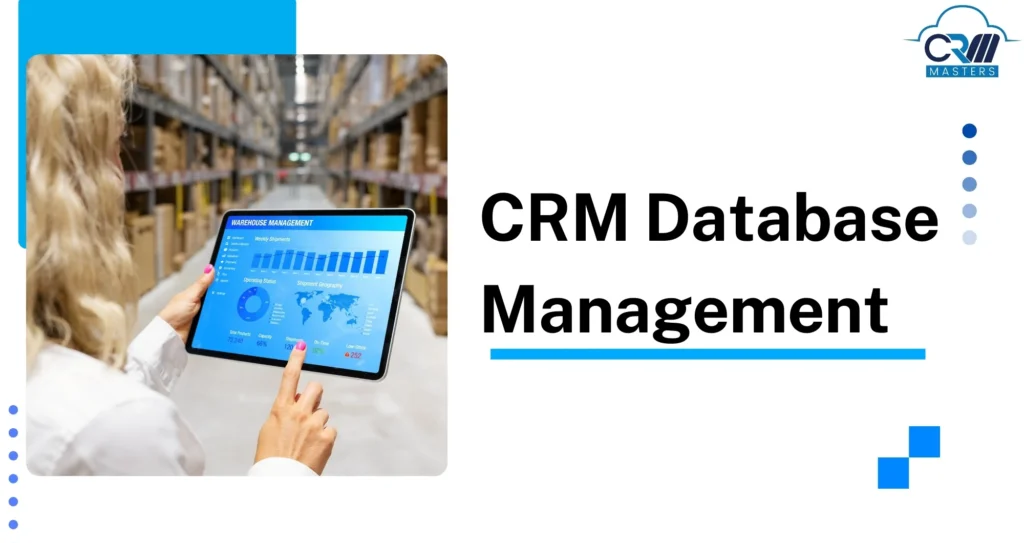Businesses need innovative solutions to manage and engage their customers. A CRM database can assist you greatly in doing this, as this system is used as a single, organizing repository for all of your customers basic contact information and a record tracking, especially their purchase history. Organizations can use this system to provide better experiences, enhance support, and get to market more effectively.
In this blog, learn about CRM database, how to create it and the benefits of it on your business.
What is CRM Data?
CRM data gathers and consolidates specific customer information within a single CRM platform. The core idea behind CRM data is to create a unified view of each customer, allowing businesses to better understand their needs and behaviors.
The Importance of CRM Data Management
Effective CRM data management is essential for businesses looking to improve customer satisfaction and retention. Without proper management, the data can become disorganized and difficult to use, negatively impacting customer experiences.
A well-structured CRM database collects the correct information at the right time. You can track customer inquiries, understand purchase patterns, or anticipate future needs.
What is a CRM Database?
A CRM database is a customer relationship management tool that stores all the customer-related data on one dashboard that businesses collect. It can store various types of customer information, including contact details, purchase records, interactions, service requests, and marketing preferences. This database can be accessed by authorized personnel within an organization to improve customer service, sales strategies, and marketing efforts.
CRM databases are typically managed using CRM software tools, which help organize the data, making it easily accessible and actionable. These tools are offered by a CRM service provider, with the best customizable features that fit the needs of different industries and business sizes.
Benefits of a Good CRM Database
A well-maintained CRM database brings several benefits to businesses:
Improved Customer Service:
A CRM database enables customer service teams to quickly access a customer’s previous interactions, facilitating swift and effective issue resolution.
Better Decision-Making:
With the correct data, decision-makers can make informed choices based on real customer insights, leading to more strategic business planning.
Enhanced Customer Relationships:
Businesses can personalize their offerings by tracking customer preferences and improving customer loyalty and satisfaction.
Increased Sales and Revenue:
A CRM database helps sales teams track leads and opportunities more effectively, which leads to higher conversion rates and sales growth.
Time Efficiency:
Centralized access to customer data reduces the need for manual searches and data entry, improving overall productivity across teams.
Simplified Marketing Campaigns:
Businesses can create targeted and effective marketing campaigns that provide better results.
How to Create a CRM Database?
To create a robust CRM database for your business, follow these steps:
- Consider the database functions
- Check information requirements
- Method for data collection
- Select suitable CRM software
- Start using the best CRM database
CRM Database Examples
Some of the most popular CRM software solutions that provide robust database management capabilities include:
Zoho CRM:
Zoho CRM is an excellent cloud-based CRM that helps you build relationships with customers on one platform. If you’re looking to implement Zoho CRM in your business, partnering with a Zoho Partner can help ensure that your CRM implementation is a smooth and efficient process.
Salesforce:
Salesforce is one of the leading CRM platforms that offers cloud-based CRM solutions with customizable features for sales, marketing, and customer service teams. For businesses considering Salesforce, working with a Salesforce Consulting Partner can significantly enhance your CRM experience.
HubSpot CRM:
HubSpot supplies CRM tools that encompass essential features tailored for small businesses and startups.
Microsoft Dynamics 365:
A comprehensive CRM solution that integrates with other Microsoft tools, providing a unified experience for large enterprises.
How do Companies Benefit from a CRM Database?
Improved Customer Service
A centralized CRM database offers immediate access to pertinent customer history data. This can help you to boost customer satisfaction.
Increase Sales and Revenue
A well-maintained CRM database helps businesses identify high-value leads and opportunities, making it easier to nurture relationships and close deals. With automated follow-ups, lead scoring, and customer segmentation, sales teams can focus on prospects most likely to convert.
Enhanced Customer Understanding and Personalization
Businesses create a detailed profile of each customer, including their preferences, purchase history, and interactions. This comprehensive view enables firms to tailor their communications, offers, and services to meet each customer’s specific needs.
Get New Opportunities for Growth with CRM Partner!
Collaborating with the right CRM partner can assist you in acquiring the most effective CRM database. With their guidance, you can organize and use customer data more effectively, leading to better customer relationships, increased sales, and smarter business choices. A good partner makes sure your CRM system fits your needs, providing the support and tools you need to grow.
CRM Master’s Infotech provides CRM services from 9+ years and helps businesses to improve their customer relationships, simplify processes and grow their business!
Partner with us today to experience the growth of your business!







